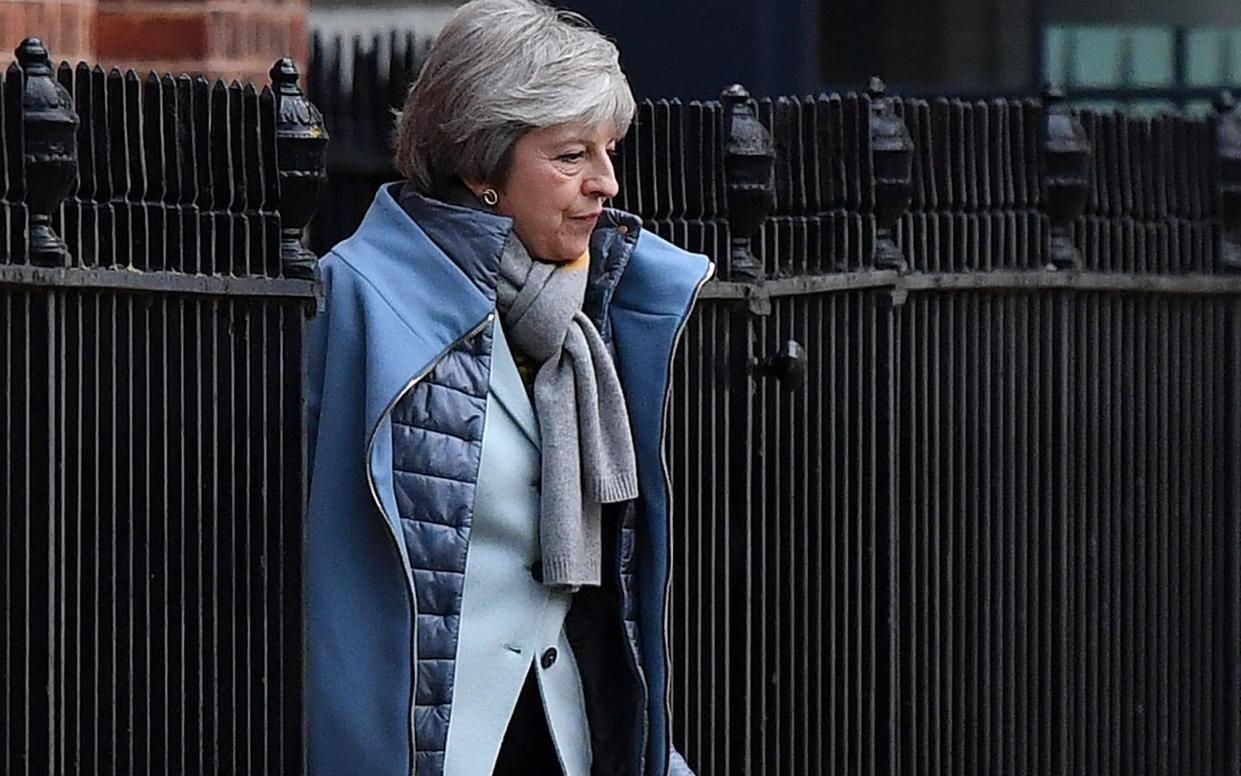Theresa May leaves diplomats in 'disbelief' after presenting EU leaders with unchanged Brexit demands

Theresa May has left European diplomats in a state of “disbelief” following a series of phone calls to EU leaders in which she made no change to her demands despite her Brexit plan being voted down by a 230-vote margin this week.
Senior EU diplomatic sources said that Mrs May’s unchanged stance was “greeted with incredulity” following a call with the German Chancellor Angela Merkel on Thursday night.
“It was the same old story - the same set of demands - all unchanged despite the defeat,” said the source with knowledge of the calls.
Mrs May is understood to have repeated the same performance in conversations with the French president Emmanuel Macron, the Dutch prime minister Mark Rutte and the Irish Taoiseach Leo Varadkar, provoking what one source called “diplomatic eye-rolling” in Brussels.
Two other senior diplomatic sources confirmed the contents - or lack of contents - of the calls to the Telegraph. “She hasn’t asked for anything new,” said the second source.

Mrs May’s demands are understood to still centre around either a legally binding time-limit for the Irish backstop; a right for the UK to withdraw unilaterally, or a hard commitment to finalising a trade deal before 2021 to avoid the backstop coming into force.
These demands were firmly rejected by the EU at the European Council summit in December after leaders expressed doubts that they would be sufficient to get the deal over the line in Westminster.
In the aftermath of Tuesday’s massive Commons defeat senior Brussels diplomats congratulated themselves that they had been vindicated, viewing the rejection as confirmation that the problems with the deal went far beyond tinkering with the so-called ‘backstop’.
Sources said that Martin Selmayr, the EU’s top civil servant who is now running the EU’s ‘no deal’ planning operation made a self-congratulatory presentation at a meeting of EU ambassadors on Wednesday saying the EU had been right not to grant concessions.
Ambassadors agreed that Mrs May would now need to go back to the drawing board and seek cross-party support for a new deal - perhaps centred on the permanent customs union favoured by Labour - before returning to Brussels.

But her decision to plough on, apparently undeterred by the rejection, has now led EU diplomats to conclude that Mrs May is still “playing for time” and believes a version of her deal - with a concession on the backstop - will eventually go through Parliament.
UK sources confirmed that Mrs May’s strategy was still to re-pitch her deal, with a concession to the Brexiteer European Research Group and the Democratic Unionist Party when it became clear that there was no Commons majority for an alternative.
“It seems clear she is still ‘running down the clock,” the EU source, “She is still staking everything on the DUP and ERG. To coin a phrase, ‘nothing has changed’”.
Mrs May’s strategy was given a boost yesterday when Germany's Foreign Minister, Heiko Maas, became the first major EU politician to concede that the EU could still re-open the draft Withdrawal Agreement.
In an interview, Mr Maas said a discussion should be held on whether to re-open the draft deal for Britain's planned exit from the European Union, but only if all EU members agreed.
"In the end, it will be about the question (of) whether to reopen the deal which needs the approval of all 27 member states, which means that everyone has to join in. This is what needs to be discussed now," he told the German broadcaster ZDF.
The remarks appeared to directly contradict the letter from Jean-Claude Juncker, the European Commission to Mrs May issued ahead of Tuesday’s vote, which had said that the EU would not agree to “anything that changes or is inconsistent with the Withdrawal Agreement”.
EU diplomats privately now concede, however, that in the light of Mrs May’s defeat it is no longer completely impossible that the Withdrawal Agreement could be changed - perhaps even to include some kind of time limit to the backstop - if it was guaranteed to close the deal.
The EU has said it will not renegotiate until Westminster has demonstrated there is a majority for a new deal, which would not rule out MPs passing the Withdrawal Agreement with on condition that it include time-limit for the backstop for, say, five years after it was triggered.
“I’m still highly sceptical EU leaders would accept this,” concluded a diplomat with knowledge of EU discussion, “But if the Commons had demonstrated there was support for such a deal, there’s no doubt that would put the us [the EU] on the spot.”

 Yahoo News
Yahoo News 
